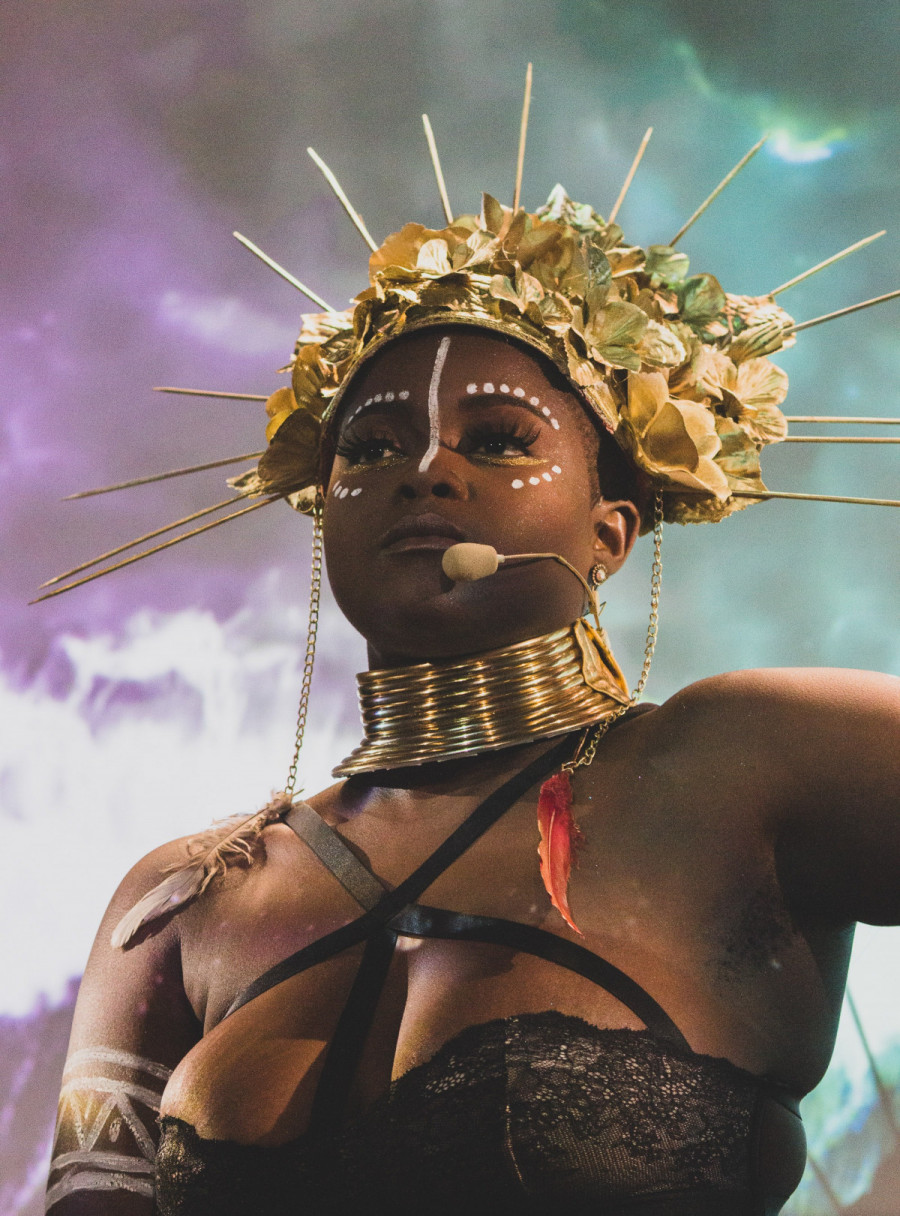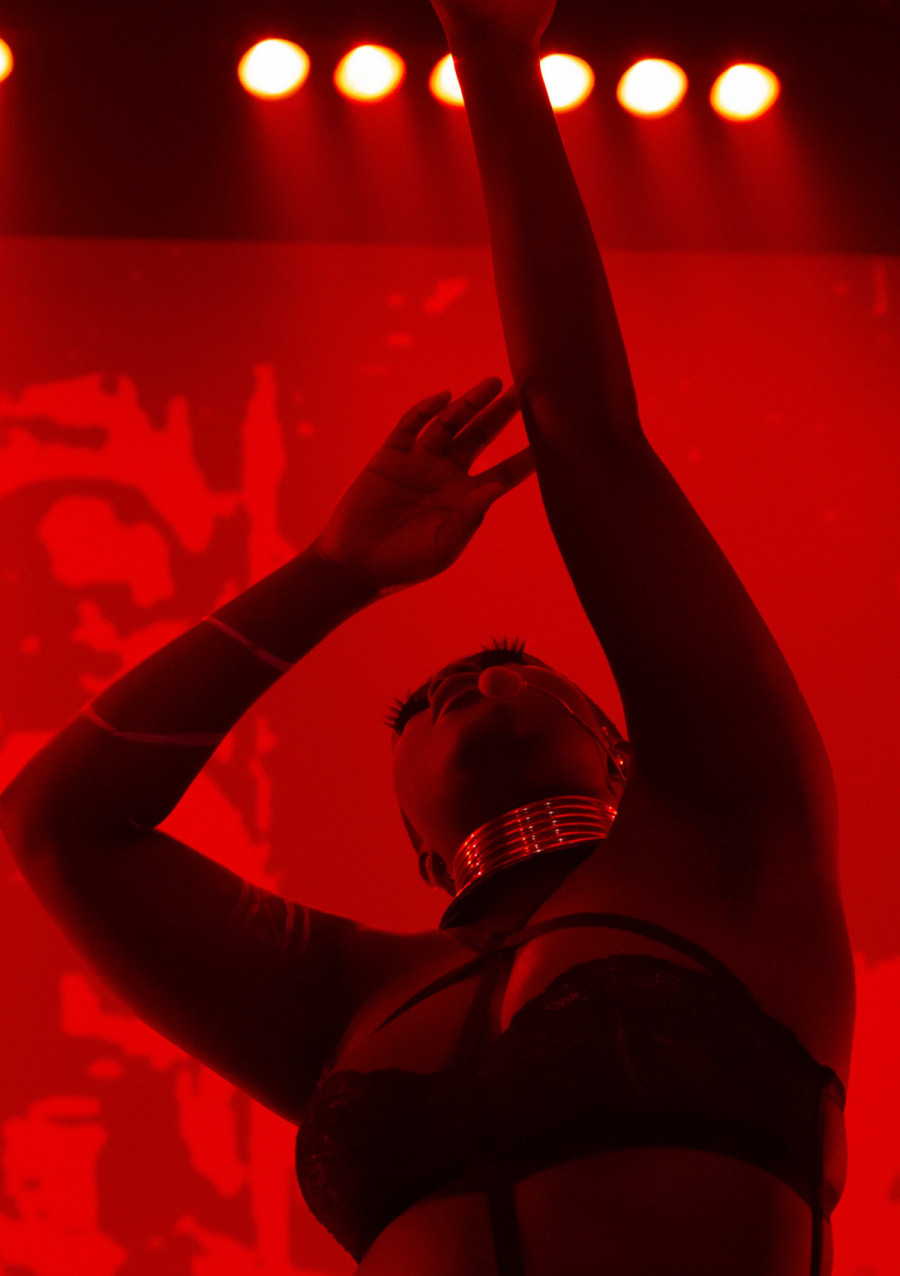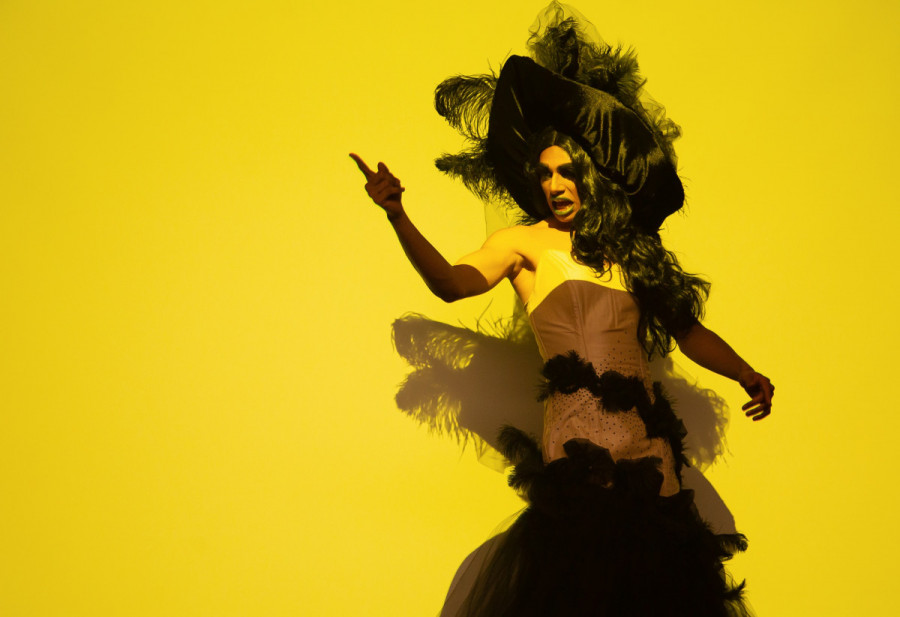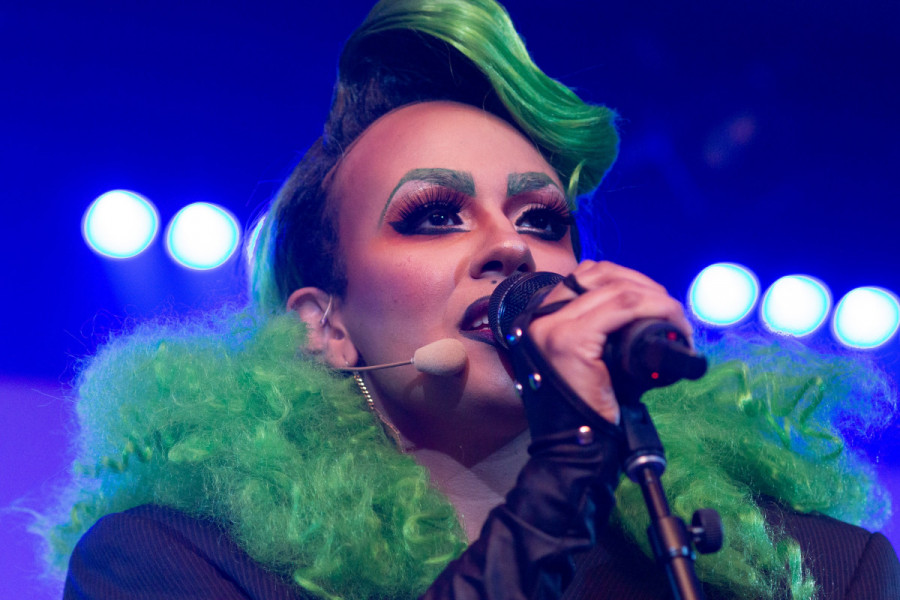Afro Drag Comes Back for a Third Edition at Phi Centre
“I definitely want the Black community to see that drag is for us”
Authenticity and empowerment pulsed through the audience at the Phi Centre on the night of Feb. 21.
One year after the first iteration of this unforgettable all-Black drag show, Afro Drag took to the stage for its third edition.
The event, created in 2019 by singer-songwriter Athena Holmes, was narrated by their drag persona, BiG SiSSY. “I’ll be doing text. I’ll be speaking to support the story and filling in some of the blanks,” said Holmes about their role in the show.
I had the privilege of speaking with Holmes in their dressing room while they began their transformation into the green-haired artist from Planet Black Star.
“The first one was so DIY. I just threw it together and had to find enough performers to fill the night because at the time [there were] only three or five [Black] drag performers.”

“I had to really encourage people to do it because they were nervous,” said Holmes, recalling their experience of Afro Drag’s first edition.
“But my goal was to have an all-Black production team and for everyone to get paid and we did that!”
“There were no performers in the city. There was me,” said Holmes, “and somebody named Barbada who’s been doing it for a super long time. It was just the two of us for a long time.
“And then Kiara moved down from Quebec City, so then there were three of us. […] So I was getting booked and there were just no Black drag performers and I was like, ‘Why?’”
On Feb. 21, alongside BiG SiSSY, the show featured Aizysse Baga, LADX, Lulu, and Powetik Justice.
The theme of this year’s edition of Afro Drag was “ancestors past, present, and future.”
Each artist embodied one or more ancestors, painting a multifaceted and theatrical tale of Black queer history.
Each act added to the complexity of the shared and personal narratives that make up Black history.
By portraying a vast range of Black queer stories, Afro Drag made the audience travel through time and space.
The artists turned back time through dance and spoken word performances that embodied Black ancestors, in addition to tributes to Tina Turner and Crystal LaBeija.
BiG SiSSY moved the event forward through Afrofuturist live music and narration of the show.
When asked what they wanted the audience to take away from Afro Drag, Holmes said: “I want them to learn the names of the performers so that they know other drag performers so that people can get booked.”

Several of the show’s “performers haven’t done drag per se before, but they’re all performers in other ways,” Holmes said of the talented cast.
“But that’s also what I like about Afro Drag. I try to keep it multidisciplinary […]. Drag is a tool for storytelling in whatever medium the person likes to use.”
Each performer transformed the energy in the room through their own unique embodiment of Black ancestry.
The show was composed of live music, spoken word, dance, and audience interactivity.
The performances were accompanied by an ensemble of video projections, found images, and audio clips of poetry and original stories.
Afro Drag was artistically directed by Lydie Dubuisson with video design by Chachi Revah a.k.a. Mechant Vaporwave.
“I definitely want the Black community to see that drag is for us. I know that it is,” said Holmes about their hopes for the show’s lasting impact.
“I just want people to see that they can do [drag] and they can do it for the first time and try it. Drag is for everybody,” they added.
“And also, that we can build these things together as a community and we don’t have to rely on other people to invite [us] into their spaces.”
On the second to last Friday of Black History Month, Afro Drag did not fall short in creating a Black queer space through drag like no other.




_600_832_s.png)

_600_375_90_s_c1.jpg)